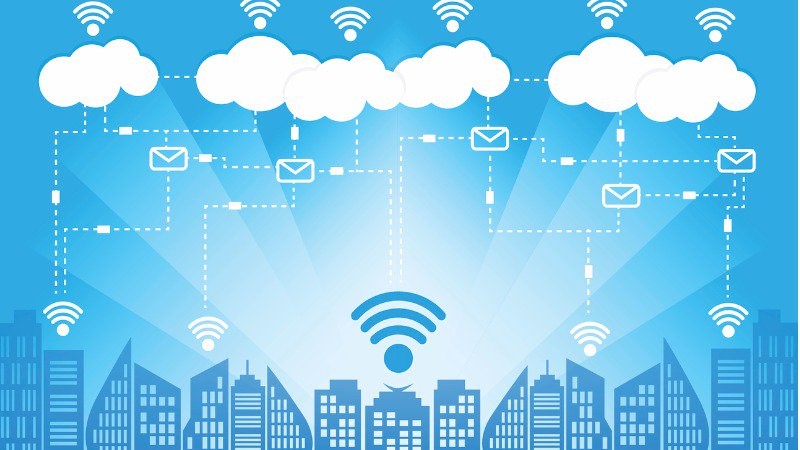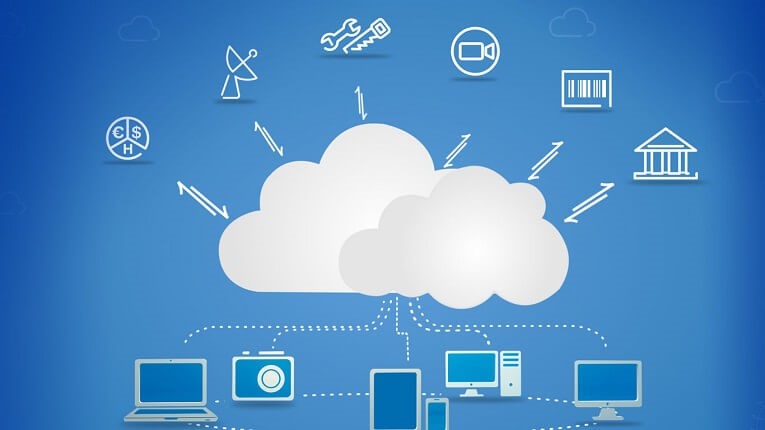One of the biggest trends in last decade was to shift to cloud. People started to move their data, business, applications and services to the cloud instead of storing them on their own server or computer. Though the revolution has been here for almost a decade, a few organizations are still trying to cope. We cannot deny the fact that cloud computing is improving but there are subtle signs that depict future of cloud computing isn’t stable!
You may be wondering what will replace it! Well, it’s the successor of cloud computing, FOG COMPUTING. As the Internet of Things will become Internet of Everything anytime soon. It is easier to conclude because the way it is expanding its reach to virtually everything, its high-speed data processing, analytics and swifter response time have already taken the world with storm. However, continuing the same with current centralized, cloud-based model and with existing system is no longer feasible. We need an upgraded form and for that we need to combine the benefits and competencies of cloud computing . The concept of Fog computing reduces the data that is moved to the cloud for analysis and further actions along with improvement of security. This is a major point of concern in the IoT industry. You may claim that these things can be improved in cloud as well then why do we need to replace cloud computing?

What is the Problem with Cloud Computing?
We all know that IoT depends on physical things, machine learning applications, and operating technologies for its explosive growth. These basically help in collecting device-generated data and enable them to make effective decisions without human involvement. Presently, this is offered by cloud service providers. But the problem arises because, cloud models aren’t applicable to those areas of real-time operations or when internet connection is not stable! For instance, we can take the case of telemedicine and patient care. Here, fatal consequences occur with delay of milliseconds. Same is the case with self-driving cars. We cannot trust cloud computing with the changing scenario because if we connect every device and gadget we own to cloud, then we are just sending the data. Well, this may have privacy, security and legal issues, specifically in the cases when we are dealing with sensitive data. Also, things complicate even more when separate countries have different rules for handling data.
Is Fog the Perfect Fit to Overcome These?
Yes, of course! IoT hubs are increasing exponentially, and they don’t have the figuring and capacity assets to perform investigation and machine learning assignments. Cloud servers, have the potential, yet are too far away to process information and react in time. Fog computing is the ideal intersection where there are sufficient figure, stockpiling and systems administration assets to mirror cloud abilities at the edge and support nearby ingestion of information and the brisk turnaround of results. A report by IDC states that by 2020, 10 percent of the world’s information will be delivered by gadgets. This will additionally drive the requirement for more effective fog processing arrangements that give low dormancy and comprehensive knowledge.

Fog computing enhances effectiveness and lessens the measure of information that should be sent to the cloud for handling. Well, this makes sure that fog computing is here to supplement the cloud, not supplant it. The cloud will keep on having an applicable part in the IoT cycle. But the reality is, with fog computing bearing the responsibilities in future, cloud assets will be liberated to go up against the heavier undertakings particularly where the investigation of recorded information and vast datasets are concerned. Bits of knowledge in cloud can encourage the changed arrangements and its usefulness.
What’s more is that there are numerous situations where profoundly proficient processing framework of the cloud will beat decentralized frameworks in execution, adaptability and expenses. This incorporates situations where information should be investigated from generally scattered sources. It is the blend of fog and cloud computing that will quicken the appropriation of IoT, particularly for now. Things may change later, but fog computing will definitely be our savior now!

What will be the Future of Fog Computing?
There are several uses of Fog computing, and it is fueling significant parts of IoT biological systems, particularly in modern environments. It has a few use cases in smart cities as well. It addition, it will help in decreasing the exchange of tremendous volumes of audio and video created by users and other IoT devices. The current pattern demonstrates that if computing will keep on growing in use and as significance of Internet of Things extends and vanquishes new grounds. So, cloud computing may not be at the verge of getting replaced but will be upgraded soon! But future of fog computing seems bright enough! What do you think? Do let us know in the comments section!


 Subscribe Now & Never Miss The Latest Tech Updates!
Subscribe Now & Never Miss The Latest Tech Updates!